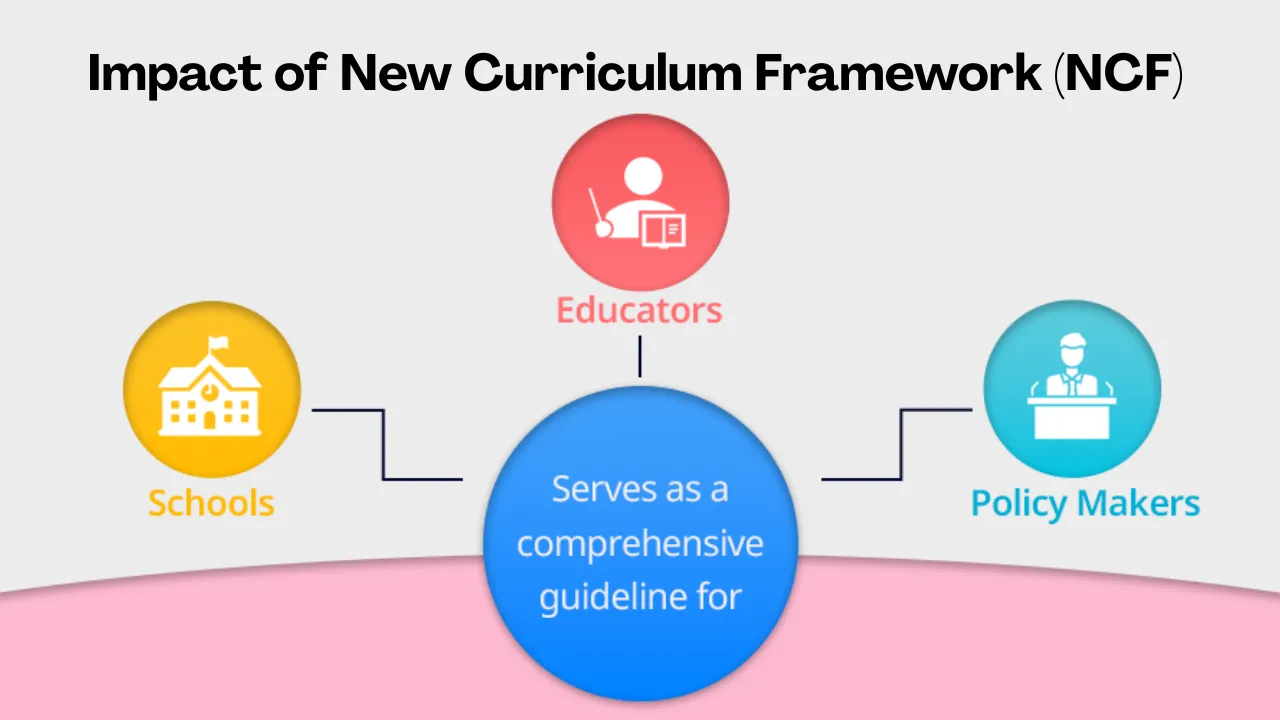Impact of New Curriculum Framework (NCF): Impact of New Curriculum Framework (NCF) is a trending topic in the education sector that has caught the attention of teachers, students, and parents alike. With constant updates in education systems, there is a strong need to understand how such frameworks shape learning experiences in real classrooms.
This article explains the Impact of New Curriculum Framework (NCF) on modern education, including how it changes teaching styles, student learning outcomes, and classroom environments. It covers the benefits, challenges, and key updates introduced by the NCF. This overview will help educators and learners understand the major shifts and adapt better to the changing system.
What is the New Curriculum Framework (NCF)?
The New Curriculum Framework (NCF) is a structured guideline designed to reform the school education system. It focuses on making learning more student-centered and skill-based. The NCF promotes creativity, critical thinking, and real-life problem-solving over rote memorization. It also focuses on reducing the academic burden while promoting joyful learning experiences.
Major Changes in Teaching Approach
One major impact of New Curriculum Framework (NCF) is the shift from traditional teaching to a more interactive and experiential style. Teachers now act as guides rather than just knowledge providers. This approach encourages students to ask questions, explore topics deeply, and learn by doing. It also integrates local culture, languages, and values into education, making learning more relevant and meaningful.
Emphasis on Foundational Literacy and Numeracy
A strong impact of New Curriculum Framework (NCF) is the focus on early childhood care and foundational learning. Special attention is given to reading, writing, and basic math skills in the early years. The goal is to build a strong base so that students can easily grasp advanced concepts later in school. This change is crucial in improving overall learning outcomes.
Skill-Based Learning and Vocational Education
The NCF highlights the need for skill-based education from a young age. It introduces vocational courses and practical skills in middle and high school. This prepares students for both higher studies and real-world jobs. By focusing on practical knowledge, students become more confident and capable of handling life challenges.
List of Key Benefits
- Student-Centered Learning: The NCF promotes personalized education tailored to student interests and strengths.
- Flexible Curriculum: Allows schools to adapt the content based on local needs and student background.
- Integrated Assessments: Exams now test skills and understanding, not just memory.
- Holistic Growth: Focus on physical, emotional, and social development along with academics.
Challenges in Implementation
Despite its benefits, the impact of New Curriculum Framework (NCF) is also met with a few challenges. Not all schools have the resources or trained staff to implement the new framework effectively. Rural and low-income schools may struggle with infrastructure and teacher training. Monitoring the quality of learning across such a wide system is also difficult. These challenges need to be addressed for the NCF to succeed nationwide.
Role of Teachers and Training
Teachers are the backbone of the new curriculum. The success of the NCF largely depends on their ability to adapt and apply new teaching techniques. Continuous teacher training programs are essential to keep them updated with the latest methods. The impact of New Curriculum Framework (NCF) can only be positive if teachers are well-supported and motivated.
Digital Tools and Online Learning
With the rise of digital education, the NCF also encourages the use of technology in classrooms. From smart boards to e-books, online resources make learning more engaging and accessible. These tools also help in assessing student performance in real-time. This use of technology supports the goals of the NCF and bridges gaps in education delivery.
List of Subjects and Interdisciplinary Learning
- Interdisciplinary Projects: Subjects like science, history, and art are connected through common themes.
- Choice-Based Subjects: Students can now choose subjects of interest, encouraging better participation and outcomes.
FAQs
What is the main goal of the New Curriculum Framework (NCF)?
The main goal is to make learning more meaningful, skill-based, and student-friendly.
How does the NCF change the exam system?
Exams now focus more on skills, critical thinking, and application rather than memory.
Are teachers ready for the NCF changes?
Many teachers need training, but steps are being taken to support them through workshops and online modules.
Does NCF apply to all schools?
Yes, it applies to most schools in the country, but implementation may vary based on school type and resources.
Will students benefit from the NCF?
Yes, the NCF aims to provide better learning experiences and practical skills for the future.
Final Thought
The impact of New Curriculum Framework (NCF) is both promising and challenging. While it brings a fresh and practical approach to education, its success depends on proper implementation, teacher training, and resource availability. If these elements are in place, the NCF can truly transform learning for the better.
Feel free to share your thoughts or ask questions in the comments. Explore more about how these changes affect your studies or your child’s future by checking your personalized academic horoscope or related education articles.











